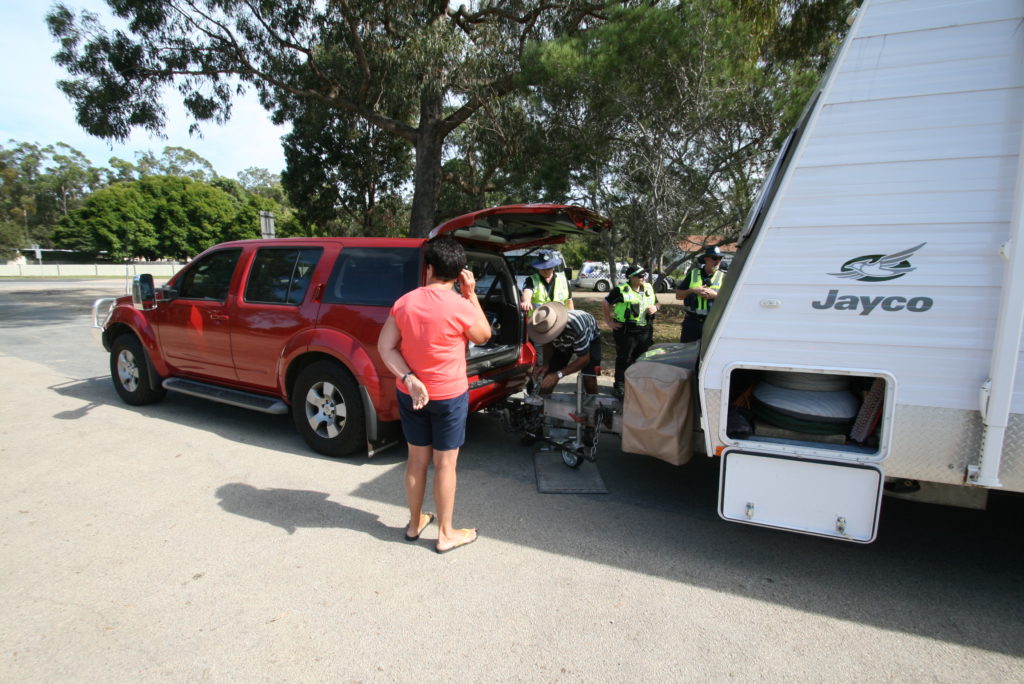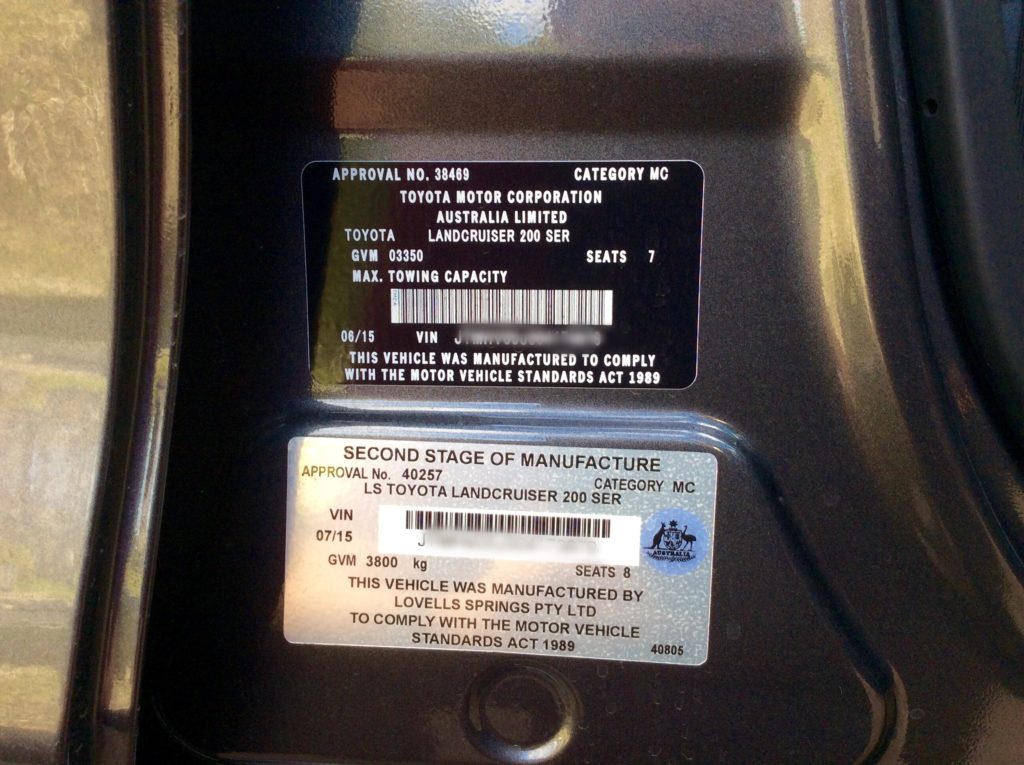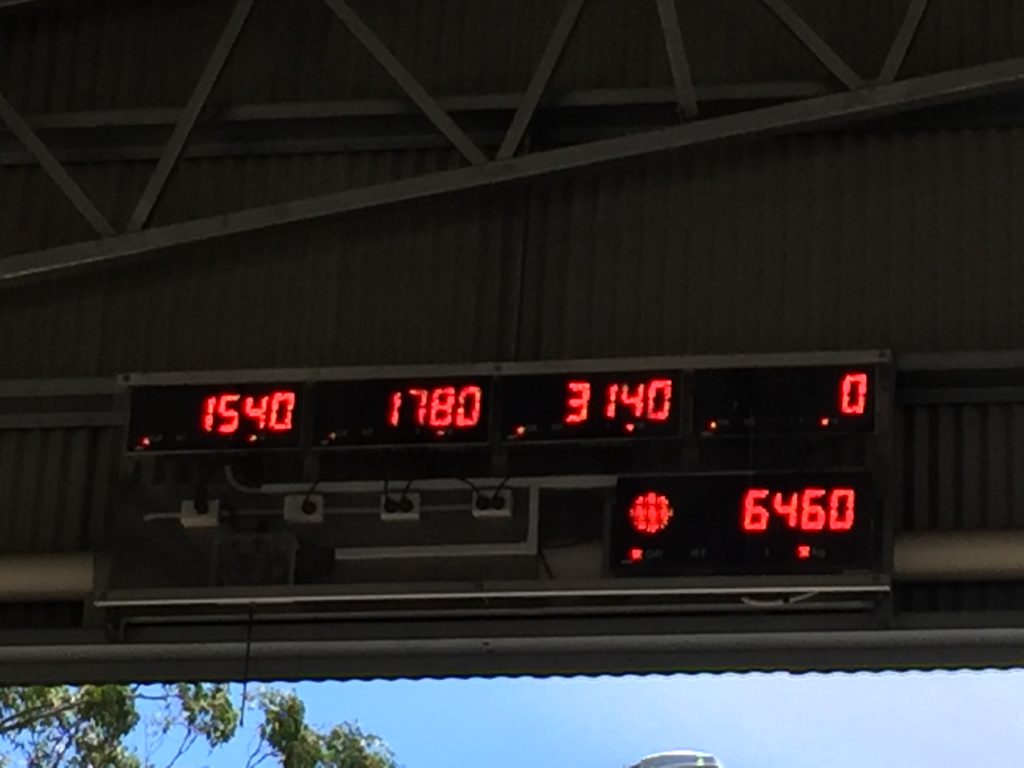
Following on from the police operation at Newmerella, lots of discussions have taken place on social media and various caravanning forums. That is an excellent outcome. If we don't all start talking about the issues raised, we will never be able to solve our weight issues. One thing is obvious and that is many people do not have any idea what their vehicle's gross combined mass is or how to calculate it. Worse still, many drivers are unaware how this can seriously effect the amount of weight you can add to your rig when towing at your maximum towing capacity. Hopefully the following will give you some idea of the problem.

GCM or Gross Combined Mass is probably the biggest issue facing caravanners at the moment especially those who drive one of the later model dual cab utes. Every vehicle that comes into this country will have a GCM figure on its compliance plate. The only exception I am aware of if the 200 series Toyota Landcruiser (pre DPF models). That particular vehicle's GCM is taken to be GVM (or gross vehicle mass) plus maximum towing capacity.
To get an idea of the problem, we need to look at some practical examples. The table below shows what happens when you load up the 10 of the most popular tow vehicles their maximum towing capacity.

Remember these are all weights of tow vehicles with no accessories fitted. As you can see the Mazda BT-50 and Ford Ranger have less that 400kgs remaining cargo capacity before they exceed their GCM. Given the popularity of these two vehicles and the likelihood they will be towing up around these weights, knowing your all up weight compared to the tow vehicle's rated GCM becomes extremely critical. Depending on how much stuff you have loaded in the tub of the ute, the van may not even be at max weight and you could still be over.

If you have any options fitted to the tow vehicle, your remaining load will be reduced even further. In fact, if you consider that the average steel bulbar weighs around 40kg, a tow hitch with gooseneck and weight distribution bars will weigh another 50kg, a car fridge full of food might weigh another 20kgs, by the time you've added two adults at 90kgs each, you've got very little remaining capacity to play with.
This is why it is so important to take your rig down to a weighbridge and have it checked. Even if you can just do a drive on and drive off and obtain your rigs total weight, you will know where you stand in relation to your GCM. Its a great place to start on the road to ensuring you are not overweight.
Safe travels.


You may be assuming incorrectly in the following statement
“Toyota Landcruisers manufactured prior to mid 2015, commonly referred to as pre DPF models, are unique in that their compliance plate does not state a GCM. In this case, the GCM is taken to be the Gross Vehicle Mass or GVM plus the maximum rated towing capacity, which in the case of the cruiser is 3500kgs. The standard cruiser will therefore have a GCM of 6,850kgs”.
If your ball weight on your on your 3500kg caravan is 350kg, the 350kg is part of the Lancruiser weight and will be calculated GVM. That leaves 3150kg on your caravan wheels which must be under the caravans rated GTM. This then gives you a GVM of 3350kg and a GTM of 3150kg. Therefore your GCM must be under 6500kg.
Hi Chris. I got the straight from a Vic Roads inspector. Because of the confusion with the 200, I raised it with him and that is what he told me. Yes the towball weight needs to be taken into account but it doesn’t go away. Its either on the towball when the van is standing on its own or it transferes to the car when connected. Its just another item of the load.
The ball weight is on the Landcruiser when your driving down the road, so you are only towing 3150kg, so if your total weight is 6850kg your Landcruiser is overweight and probably on the rear axle.
Question Why do the Caravan manufactures Get theirTare
weight without all the required things. like water,gas&bottles
spare tyre etc, they do that to con people to think they can tow
with the family car. Tare weight is as you would use it. with all
those things, Then allow the 400kg thats on tandem axle add
400kg+Tare as above= your ATM
Hi Leo. That’s how it should be but sadly it just isn’t. I think things will change. It will take time.